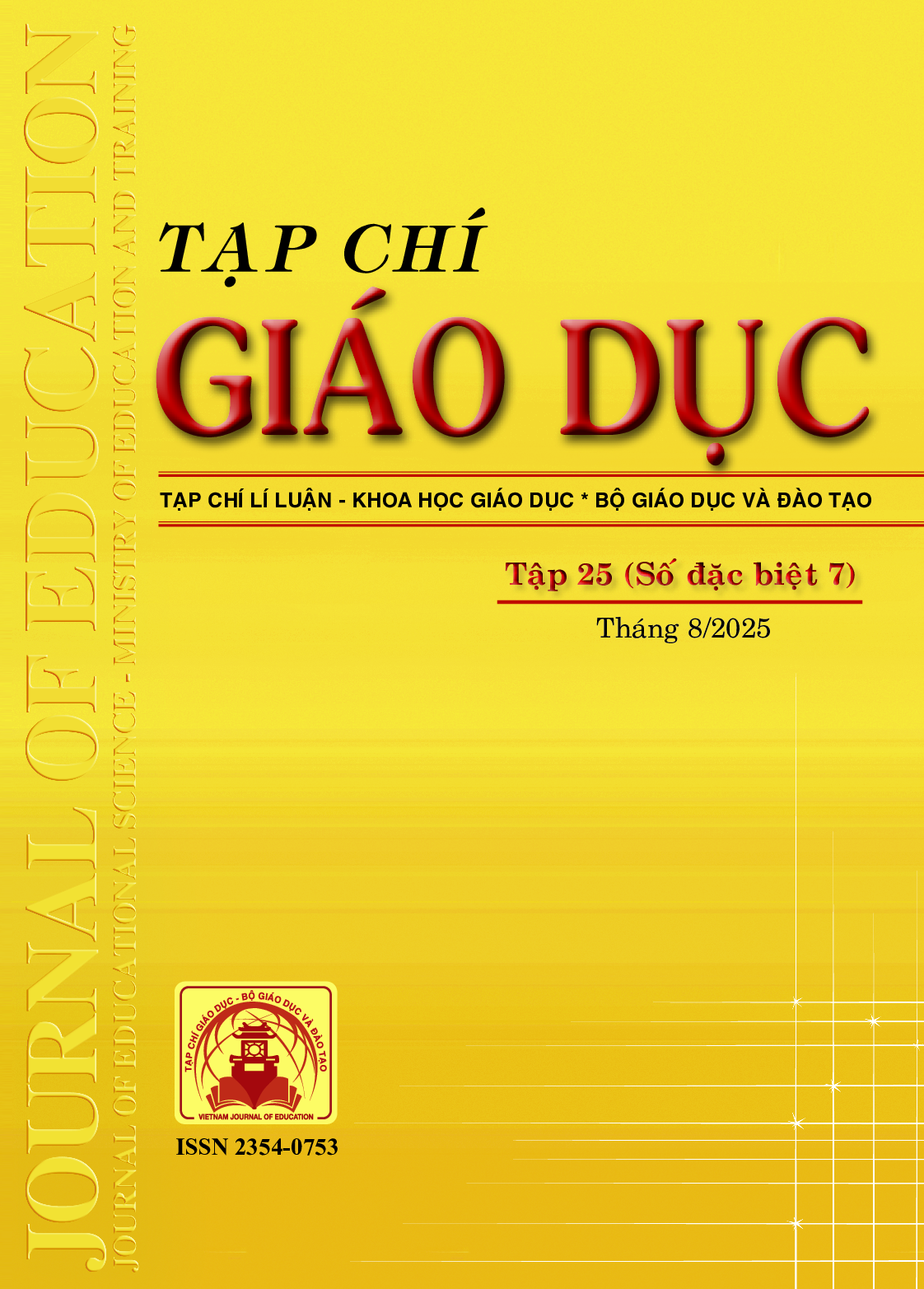Tác động của kiến thức về trí tuệ nhân tạo tới hành vi đổi mới trong học tập thông qua dự án của sinh viên: Nghiên cứu tại Trường Đại học Ngoại thương
Tóm tắt
In the context of accelerating digital transformation in education in Vietnam, understanding and applying Artificial Intelligence (AI) has become an essential factor in innovating teaching and learning activities at the university level. However, there is still a lack of empirical studies on the relationship between AI literacy and students’ innovative behavior, an essential competency in the digital era. Therefore, this study was conducted at Foreign Trade University. The study reveals that students’ understanding of AI positively influences their innovative behavior. Specifically, students with foundational AI knowledge tend to proactively integrate tools such as chatbots, data analysis systems, and automation platforms into their projectbased learning. This not only enhances learning effectiveness but also fosters technological skills and the ability to solve real-world problems. The findings provide practical evidence for integrating AI-related knowledge into higher education curricula, particularly through project-based learning approaches.
Tài liệu tham khảo
Almatrafi, O., Johri, A., & Lee, H. (2024). A systematic review of AI literacy conceptualization, constructs, and implementation and assessment efforts (2019-2023). Computers & Education Open, 6, 100173. https://doi.org/10.1016/j.caeo.2024.100173
Amabile, T. M. (1988). A model of creativity and innovation in organizations. In B. M. Staw & L. L. Cummings (Eds.), Research in organizational behavior (Vol. 10, pp. 123-167). Greenwich, CT: JAI Press.
Brenner, C. A. (2022). Self-regulated learning, self-determination theory and teacher candidates’ development of competency-based teaching practices. Smart Learning Environments, 9(1), 3. https://doi.org/10.1186/s40561-021-00184-5
Chiu, T. K. F., Ahmad, Z., Ismailov, M., & Sanusi, I. T. (2023). What are artificial intelligence literacy and competency? A comprehensive framework to support them. Computers and Education Open, 6, 100171. https://doi.org/10.1016/j.caeo.2024.100171
Chiu, T. K. F., Falloon, G., Song, Y., Wong, V. W. L., Zhao, L., & Ismailov, M. (2024). A self-determination theory approach to teacher digital competence development. Computers & Education, 214, 105017. https://doi.org/10.1016/j.compedu.2024.105017
Deci, E. L., & Ryan, R. M. (1985). Intrinsic motivation and self-determination in human behavior. Springer Science & Business Media.
Deci, E. L., & Ryan, R. M. (2000). The “what” and “why” of goal pursuits: Human needs and the self-determination of behavior. Psychological Inquiry, 11(4), 227-268. https://doi.org/10.1207/S15327965PLI1104_01
Di Domenico, S. I., & Ryan, R. M. (2017). The emerging neuroscience of intrinsic motivation: A new frontier in self-determination research. Frontiers in Human Neuroscience, 11, 145. https://doi.org/10.3389/fnhum.2017.00145
Froiland, J. M., & Worrell, F. C. (2016). Intrinsic motivation, learning goals, engagement, and achievement in a diverse high school. Psychology in the Schools, 53(10), 321-336. https://doi.org/10.1002/pits.21901
Hidayatullah, A., & Csíkos, C. (2023). Association between psychological need satisfaction and online self-regulated learning. Asia Pacific Education Review. Advance online publication. https://doi.org/10.1007/s12564-023-09910-9
Hsu, H.-C. K., Wang, C. V., & Levesque-Bristol, C. (2019). Reexamining the impact of self-determination theory on learning outcomes in the online learning environment. Education and Information Technologies, 24(3), 2159-2174. https://doi.org/10.1007/s10639-019-09863-w
Ji, Y., Zhong, M., Lyu, S., Li, T., Niu, S., & Zhan, Z. (2025). How does AI literacy affect individual innovative behavior: The mediating role of psychological need satisfaction, creative self-efficacy, and self-regulated learning. Education and Information Technologies. Advance online publication. https://doi.org/10.1007/s10639-025-13437-4
Jonge, K. M. M. de, Rietzschel, E. F., & Van Yperen, N. W. (2018). Stimulated by novelty? The role of psychological needs and perceived creativity. Personality and Social Psychology Bulletin, 44(6), 851-867. https://doi.org/10.1177/0146167217752361
Martín-Núñez, J. L., Ar, A. Y., Pérez Fernández, R., Abbas, A., & Radovanović, D. (2023). Does intrinsic motivation mediate perceived artificial intelligence (AI) learning and computational thinking of students during the COVID-19 pandemic? Computers and Education: Artificial Intelligence, 4, 100128. https://doi.org/10.1016/j.caeai.2023.100128
Ryan, R. M., & Deci, E. L. (2000). Self-determination theory and the facilitation of intrinsic motivation, social development, and well-being. American Psychologist, 55(1), 68-78. https://doi.org/10.1037/0003-066X.55.1.68
Thomas, J. W. (2000). A review of research on project-based learning. Autodesk Foundation. https://www.researchgate.net/publication/238162544_A_Review_of_Research_on_Project-Based_Learning
Thompson, S. (2024). What is innovation in education and why it’s important? Kaltura. https://corp.kaltura.com/blog/what-is-innovation-in-education/
Van den Broeck, A., Ferris, D. L., Chang, C.-H., & Rosen, C. C. (2016). A review of self-determination theory’s basic psychological needs at work. Journal of Management, 42(5), 1195-1229. https://doi.org/10.1177/0149206316632058
Wang, L., & Li, W. (2024). The impact of AI usage on university students’ willingness for autonomous learning. Behavioral Sciences, 14(10), 956. https://doi.org/10.3390/bs14100956
Zimmerman, B. J. (2010). Becoming a self-regulated learner: An overview. Theory Into Practice, 41(2), 64-70.
Đã Xuất bản
Cách trích dẫn
Số
Chuyên mục
Giấy phép

Tác phẩm này được cấp phép theo Ghi nhận tác giả của Creative Commons Giấy phép quốc tế 4.0 .












